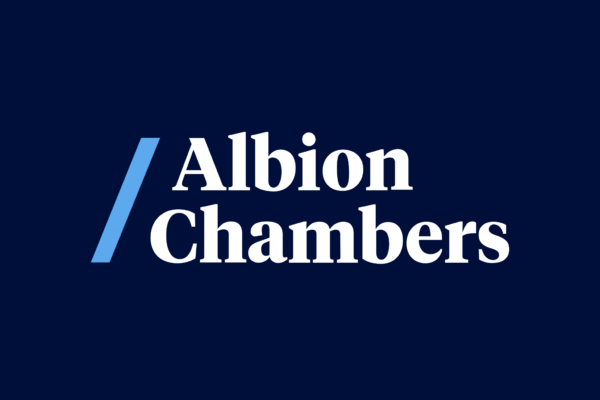This missive is not going to cover, in any sort of depth, the interesting recent authorities about plumbers, drivers and delivery riders: the topic has been done to death by others and by this time next year, there will be a few new cases on point.
What this bulletin is going to explore is the extent to which we need to re-examine our traditionally held views of employment status, whether the status quo of our understanding can still be justified.
Therefore, for the purposes of this bulletin, we’ll use a very basic summary of the law, accepting, as I do, the error in over-simplification. So someone is an employee if, for instance:
- they have set hours and days that they are required to work;
- there is no leeway in who does the work: it must be that individual;
- a manager or supervisor monitors the employee’s work;
- there must be mutuality of obligation.
The above factors (and others) were examined through the different lens of the various gig-economy cases of Uber, Pimlico Plumbers and Deliveroo, which caused many, this writer included, to re-examine our preconceptions, to challenge what we believed to be an employment-type job, or vice versa.
Applying our basic factors, Uber drivers were found to be workers not self-employed individuals. Similarly, Pimlico Plumbers exercised tight control over those that worked for it, using branded uniforms and restricting the plumber’s ability to work for competitors. The level of control Pimlico Plumbers exercised over the claimant led the Supreme Court to conclude he was a worker not self-employed.
But how far do we go in our re-examination? The most recent case of note was issued by British Cycling’s Jess Varnish Ms J Varnish v British Cycling Federation t/a British Cycling & United Kingdom Sports Council t/a UK Sport Case No. 2404219/2017. Our preconceptions may tell us that a sports person isn’t employed by the national body, but then we return to our factors, let’s look at matters through a different lens.
The Claim
Ms Varnish’s claim was brought against British Cycling and UK Sport in the Manchester Employment Tribunal. Ms Varnish claimed for unfair dismissal, sex discrimination, victimisation and unlawful detriment having made a protected disclosure. It was submitted by her legal team that Ms Varnish was either an employee or worker of one or both of the respondents.
Background Facts
Ms Varnish received funding from UK Sport via an Athlete Performance Award (APA). The awards were funded by the National Lottery. They were means tested to enable athletes to focus on training and tax free. Ms Varnish received an APA in varying amounts from 2007 until 2016; some years she received £28,000. Ms Varnish submitted that she considered the APA as a ‘wage’.
To be eligible to apply for an APA Ms Varnish had to be a member of British Cycling’s World Class Programme. The Tribunal found that there were limited opportunities for track athletes to obtain employment outside the Programme. Ms Varnish had set up her own business in 2010 and obtained sponsorship deals though her company. She relied on that income and her APA.
The Tribunal addressed control. It found that Ms Varnish agreed to a high level of control when she entered into an Athlete Agreement with British Cycling. It accepted that Ms Varnish was told what to eat and when to eat it. It was submitted that coaches exercised extreme control, but the Tribunal found that many of the examples were from when Ms Varnish was under 18 and the coaches were acting in loco parentis. Ms Varnish could have hired her own coach had she wished to, as set out in the Athlete Agreement.
Athletes were required to wear Team GB clothing when travelling to and from, and taking part in, Team GB events. Athletes were subjected to strict behavioral standards, including anti-doping and betting. The Agreement included detailed provisions governing media work. There were restrictions in relation to sponsorship and personal commercial work. Prior written consent had to be obtained from British Cycling before entering into any sponsorship agreement with a competitor of British Cycling, or its commercial partners. There were a number of other areas that were subject to strict control as a result of the Athlete Agreement, which are detailed in the judgment.
Tax was addressed in the Agreement. British Cycling did not pay tax or national insurance. Athletes were provided with guidance and warned that they may be liable to pay tax and national insurance.
British Cycling had the power within the Agreement to terminate Ms Varnish’s work with the team, and subsequently did so.
If one listed the above facts, in bullet point form, under our four factors at the top of this e-bulletin, how would we get on? Would this begin to look like a self-employed status, or something else?
Tribunal Decision
The conclusion of the Tribunal was that Ms Varnish was not an employee or worker of either respondent.
First, the Tribunal found, there was no mutuality of obligation or wage/work bargain. Ms Varnish agreed to train in the hope she would be selected for the British Cycling team, therefore, she was not being provided with work by either respondent or by both of them under a tripartite agreement. Services were provided to assist Ms Varnish with her training but there was no obligation for her to take them up and she could hire her own coach.
In addition, the APA was funded by the National Lottery and Ms Varnish had to apply to UK Sport for an award. There was no guarantee that Ms Varnish would receive an award and it was variable. The payment wasn’t based on work done, as a wage would be, but on future potential. British Cycling did not fund Ms Varnish.
Next, personal performance. The Tribunal found that although Ms Varnish had to personally perform the agreement to train under her individual rider plan, British Cycling was not providing her with work to perform. The Tribunal found that this conclusion was inconsistent with a finding of a contract of employment.
Ms Varnish was not required to do anything amounting to personal performance for UK Sport, she simply applied for what was essentially a grant and was successful in doing so.
What about control? The Tribunal accepted that control was a significant feature of the relationship between Ms Varnish and British Cycling, as reflected in the Athlete Agreement. However, as there was no mutuality of obligation or personal performance, Ms Varnish was not an employee of British Cycling.
UK Sport had no control over Ms Varnish, aside from requiring her to make appearances for National Lottery, which never happened.
Worker Status and The Equality Act
Ms Varnish was found not to be a worker. There was no contract of service, mutuality of obligation or personal performance. The Tribunal then asked itself:
[I]s the claimant employed as an employee under a contract of employment, a contract of apprenticeship or a contract personally to do work within the meaning of section 83(2)(a) of the Equality Act 2010 by the first respondent?
The Tribunal answered ‘no’ on the basis that the relationship between Ms Varnish and British Cycling was akin to a student attending University and receiving a grant to do so.
Other Professions
It is unclear whether the decision will be appealed and of course, it isn’t binding. Nevertheless, the very fact of a challenge in such an employment scenario caused me to reflect following a recent conversation with a colleague, a colleague who, in the main, undertakes criminal prosecution work.
But a barrister is self employed. Of course they are, aren’t they?
This colleague explained to me that when working for the Crown Prosecution Service, the following features apply to that relationship:
- the barrister instructed must do the case unless a substitute is agreed with the CPS;
- the fees are fixed, there can be no negotiation from the barrister’s side;
- all significant decisions must be vetted by the CPS first;
- a particular computer system (tools) provided by the government/adopted by the CPS must be used in prosecuting the case;
- there is a ‘grading system’ of 1 to 4, 4 being the highest (akin to performance review);
- the Director of Public Prosecutions recently announced that there will be covert monitoring of prosecution barristers in court; and
- particular forms must be submitted, in a timescale dictated by the CPS, at the conclusion of each hearing.
In this example there is exclusivity, control, decision making by someone other than the barrister, provision of tools and a requirement to obtain permission before any substitution. Should we now write the ‘of course’, in a barrister being self employed when working for the Crown Prosecution Service, in light pencil?
Conclusions
The recent case law demonstrates a shift in the conventional application of established principles, including contractual interpretation. The gig economy has acted as a new lens, or filter, through which existing principles can be re-examined.
Where will this lead us? Well, that’s a topic for a future e-bulletin.


